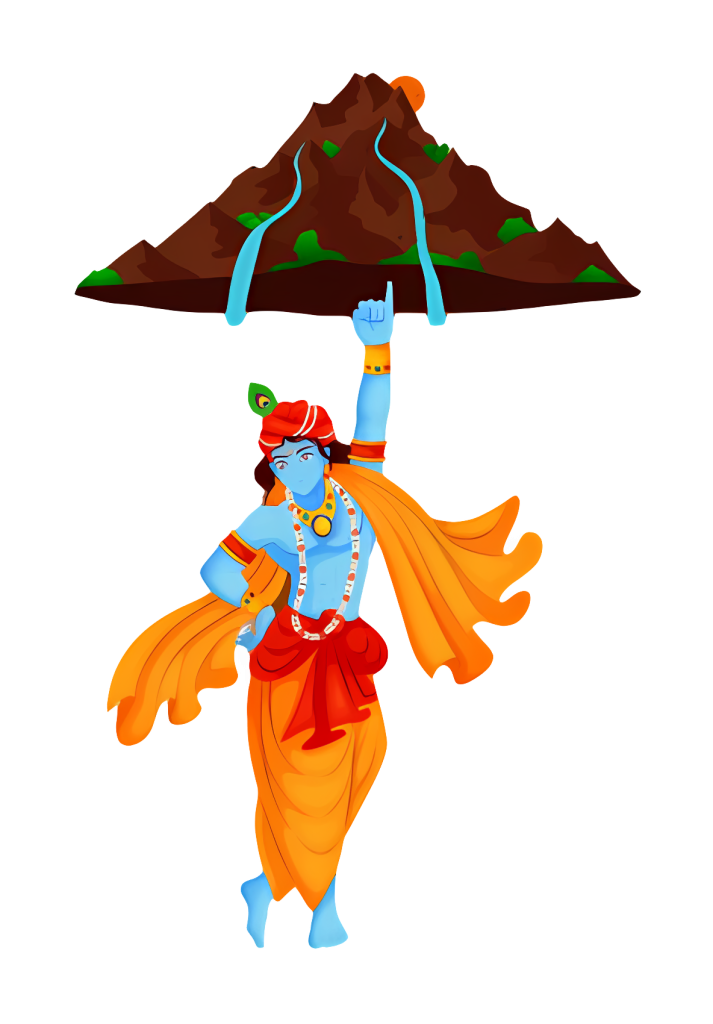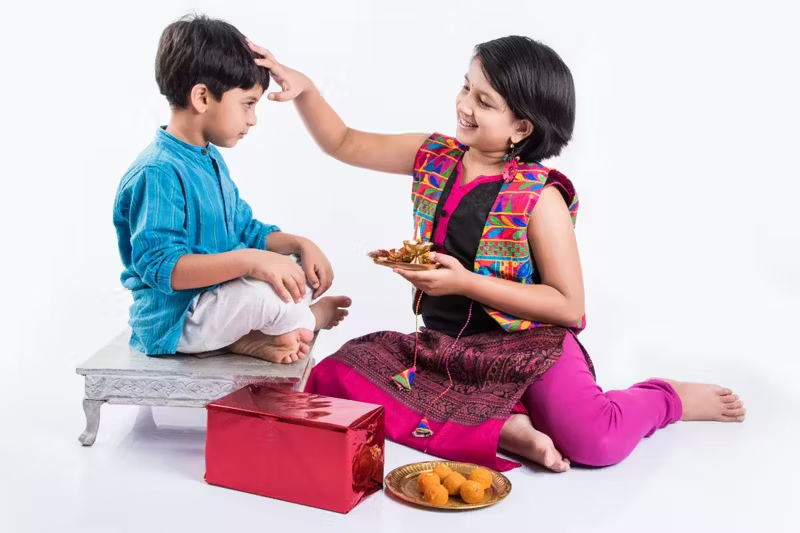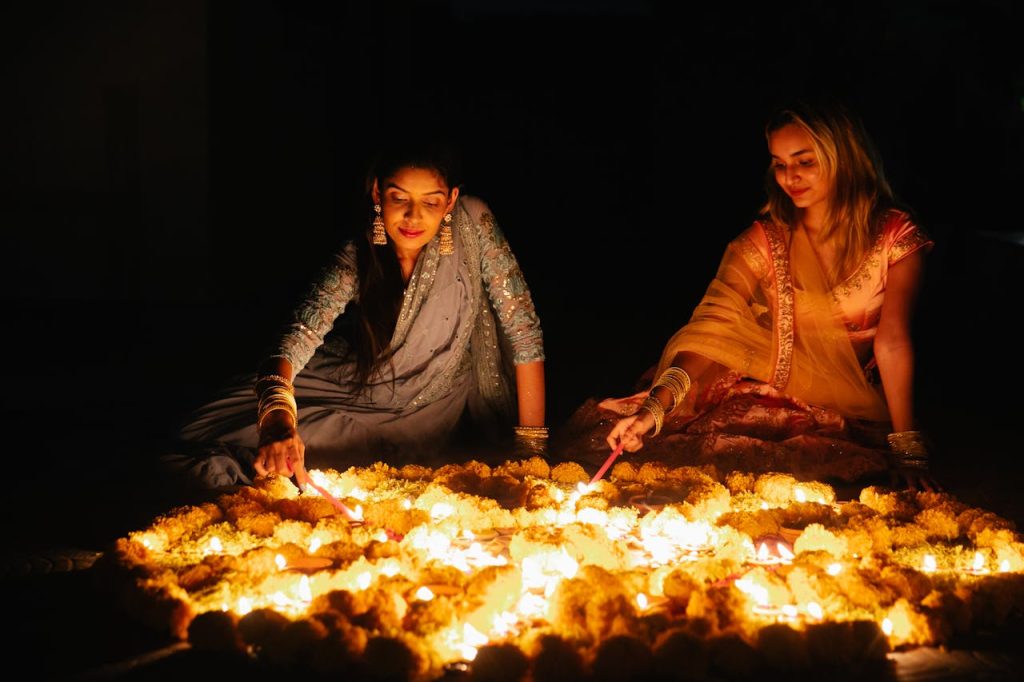Diwali, the Festival of Lights, is one of the most vibrant and significant celebrations in India and among Indian communities worldwide. The festivities extend beyond just a single day, encompassing various rituals and chaos, including Govardhan Puja and Bhai Dooj. Each of these occasions brings unique traditions and cultural significance, binding families and communities together.
The flavor of Diwali:
Diwali typically spans five days, with each day carrying its own significance. The festival begins with Dhanteras, where people worship wealth and prosperity, followed by Naraka Chaturdashi, also known as Choti Diwali, which commemorates Lord Krishna’s victory over the demon Narakasura. The third day, the main day of Diwali, sees families lighting diyas, exchanging sweets, and bursting crackers to celebrate the return of Lord Rama to Ayodhya after defeating Ravana.
The festival symbolizes hope and renewal. Homes are cleaned and decorated with colorful rangoli, lights, and flowers, creating a festive atmosphere. Families come together to perform Lakshmi Puja, seeking blessings for wealth and prosperity in the coming year. This day is also a time for reflection, gratitude, and strengthening family bonds.
Govardhan Puja: A Celebration of Nature
The day after Diwali is celebrated as Govardhan Puja, honoring the lifting of the Govardhan Hill by Lord Krishna to protect the villagers of Vrindavan from torrential rains caused by the wrath of Indra, the rain god. This act demonstrated Krishna’s power and his role as a protector.

On this day, devotees prepare elaborate food offerings, especially made from fresh produce, and create a replica of Govardhan Hill using cow dung, symbolizing the hill itself. This ritual not only expresses devotion to Krishna but also reflects the agricultural roots of Indian culture, celebrating the bond between nature and humanity.
In many regions, Govardhan Puja is also a time to foster communal harmony. Families come together to prepare and share festive meals, emphasizing the importance of togetherness and gratitude for nature’s bounty. The day encourages a deep respect for the environment and the interconnectedness of all living beings.
Bhai Dooj: Celebrating Sibling Bonds:
The festival of Bhai Dooj, observed two days after Diwali, is a heartfelt celebration of the bond between brothers and sisters. This day is dedicated to honoring the special relationship that siblings share. Sisters pray for their brothers’ well-being, while brothers express their love and commitment to protect their sisters.

On Bhai Dooj, sisters perform aarti and apply tilak on their brothers’ foreheads, signifying their love and protection. In return, brothers give gifts and promises of care, creating a beautiful exchange of affection. This tradition reinforces familial ties and emphasizes the importance of support and love within the family structure.
While the rituals may vary across regions, the essence remains the same: celebrating sibling love. In few areas, this day is also marked by feasting and sharing special sweets, further enhancing the festive spirit.
Cultural Significance:
Together, Diwali, Govardhan, and Bhai Dooj encapsulate a holistic view of life and relationships. Diwali teaches us about the triumph of good over evil, encouraging us to seek positivity in our lives. Govardhan Puja emphasizes respect for nature and the importance of community, urging us to live in harmony with our environment. Bhai Dooj, on the other hand, reminds us of the strength found in familial bonds, promoting love, protection, and mutual respect among siblings.

These festivals also reflect the diversity of Indian culture. Different regions may celebrate these occasions with unique customs, showcasing the rich tapestry of traditions across the country. From vibrant fireworks in urban centers to serene rituals in rural areas, each celebration adds to the cultural richness of India.
Modern Celebrations:
In contemporary times, the essence of these festivals has evolved. With urbanization and changing lifestyles, many people celebrate in more compact ways, focusing on meaningful interactions rather than extravagant displays. However, the core values remain intact. Families still come together, whether physically or virtually, to celebrate their bonds and the spirit of the festivals.
Moreover, there is a growing awareness of environmental sustainability. Many families are opting for eco-friendly decorations, sustainable gifting practices, and conscious celebrations that reflect a commitment to protecting the planet.
Conclusion:
Diwali, Govardhan, and Bhai Dooj serve as a powerful reminder of the importance of light, love, and harmony in our lives. They encourage us to reflect on our relationships with each other and the world around us. As we celebrate these festivals, let us embrace the values they represent and strive to create a more compassionate, connected, and sustainable world.
May the lights of Diwali illuminate our lives, the spirit of Govardhan inspire us to respect nature, and the bonds of Bhai Dooj strengthen our relationships. Vamaindia.in wishes Happy Diwali, Govardhan Puja, and Bhai Dooj to all!


